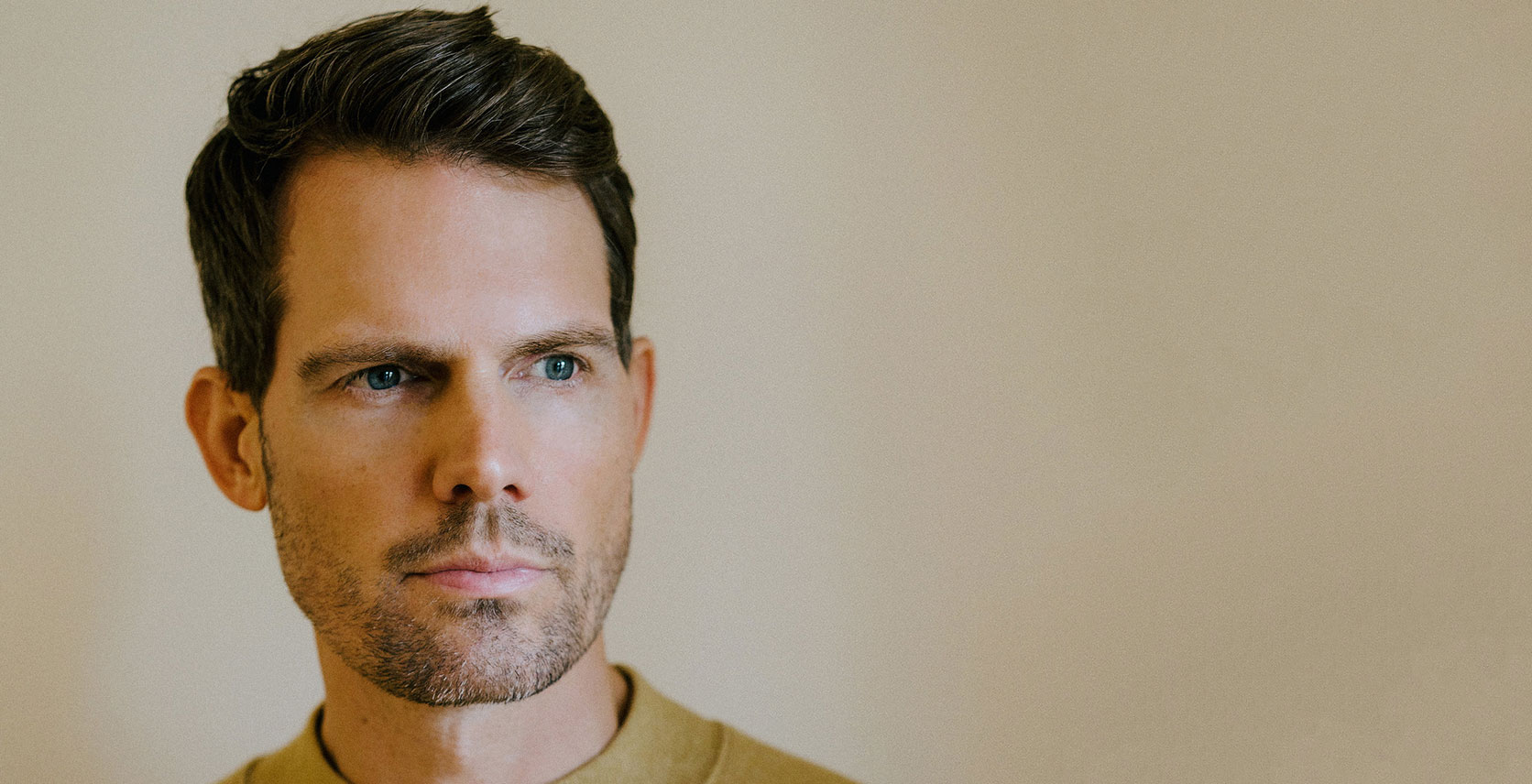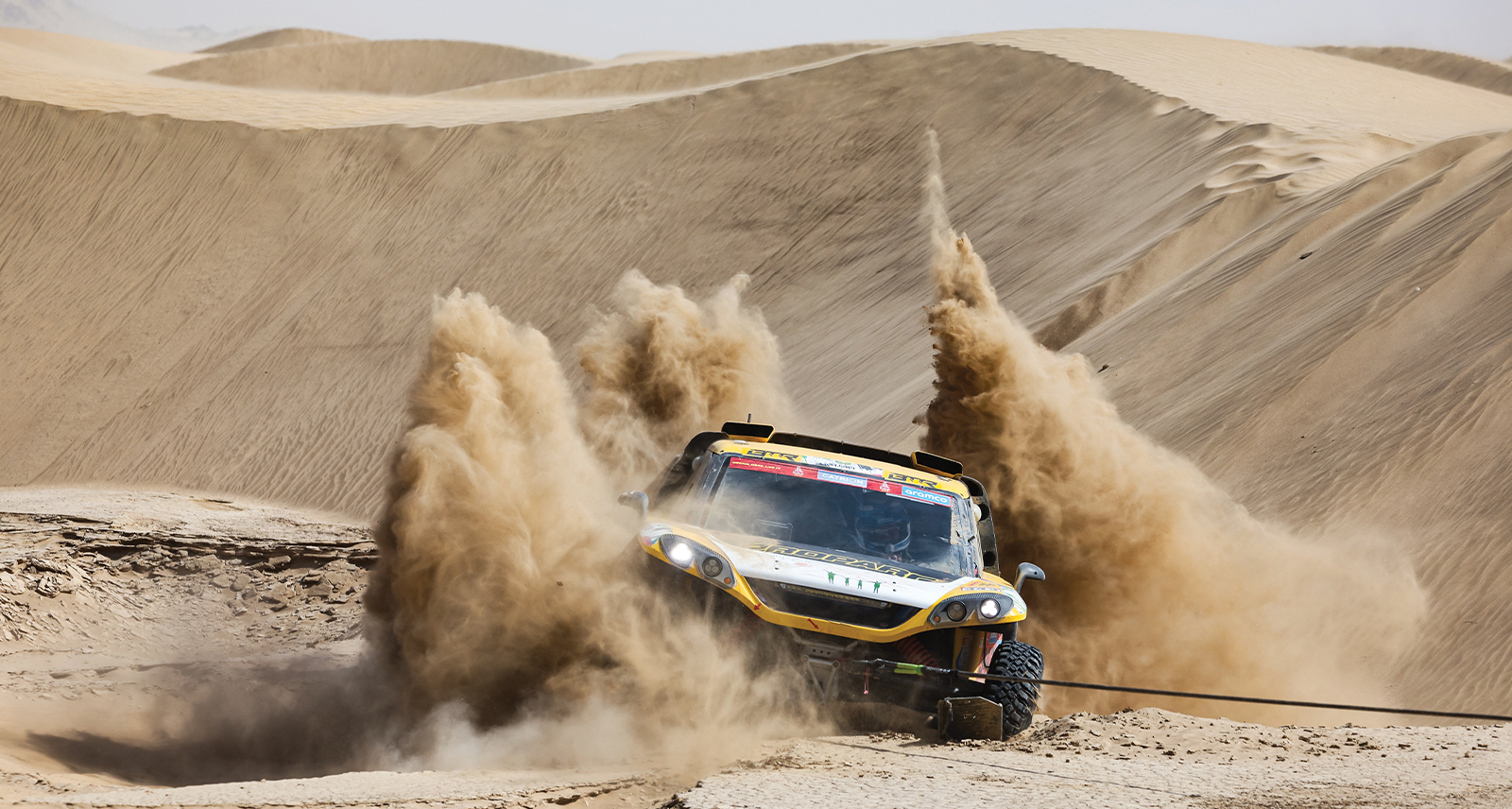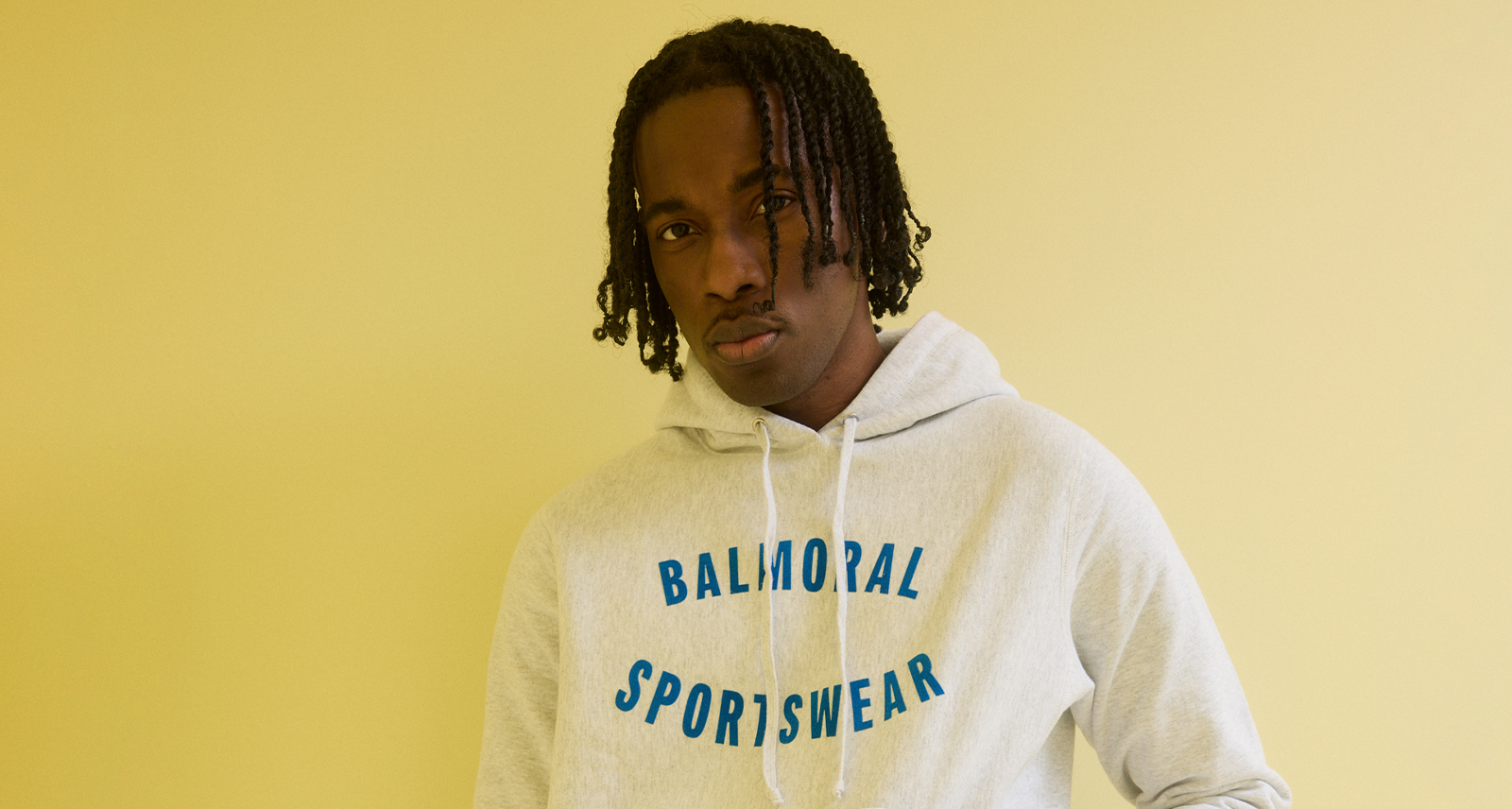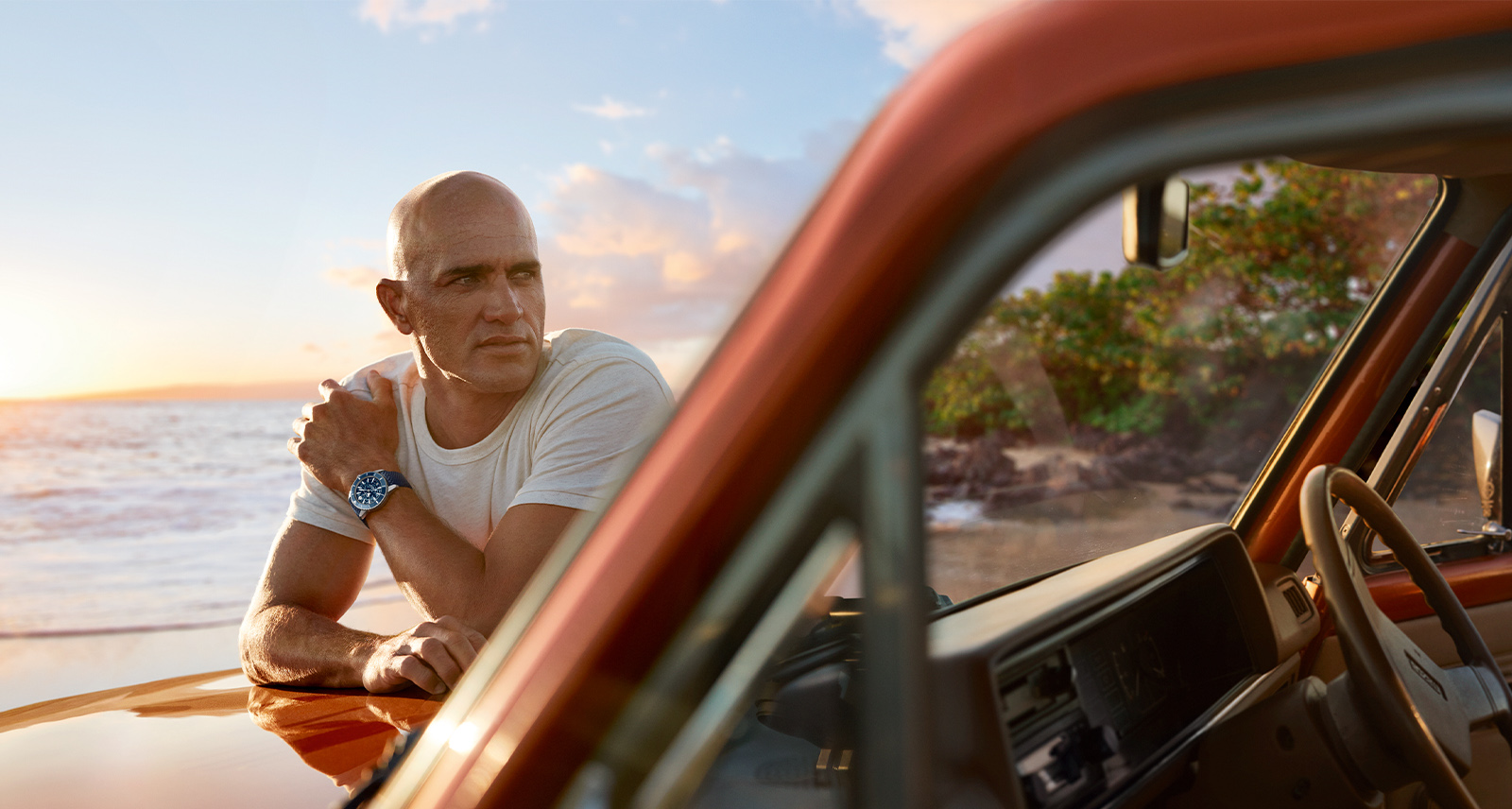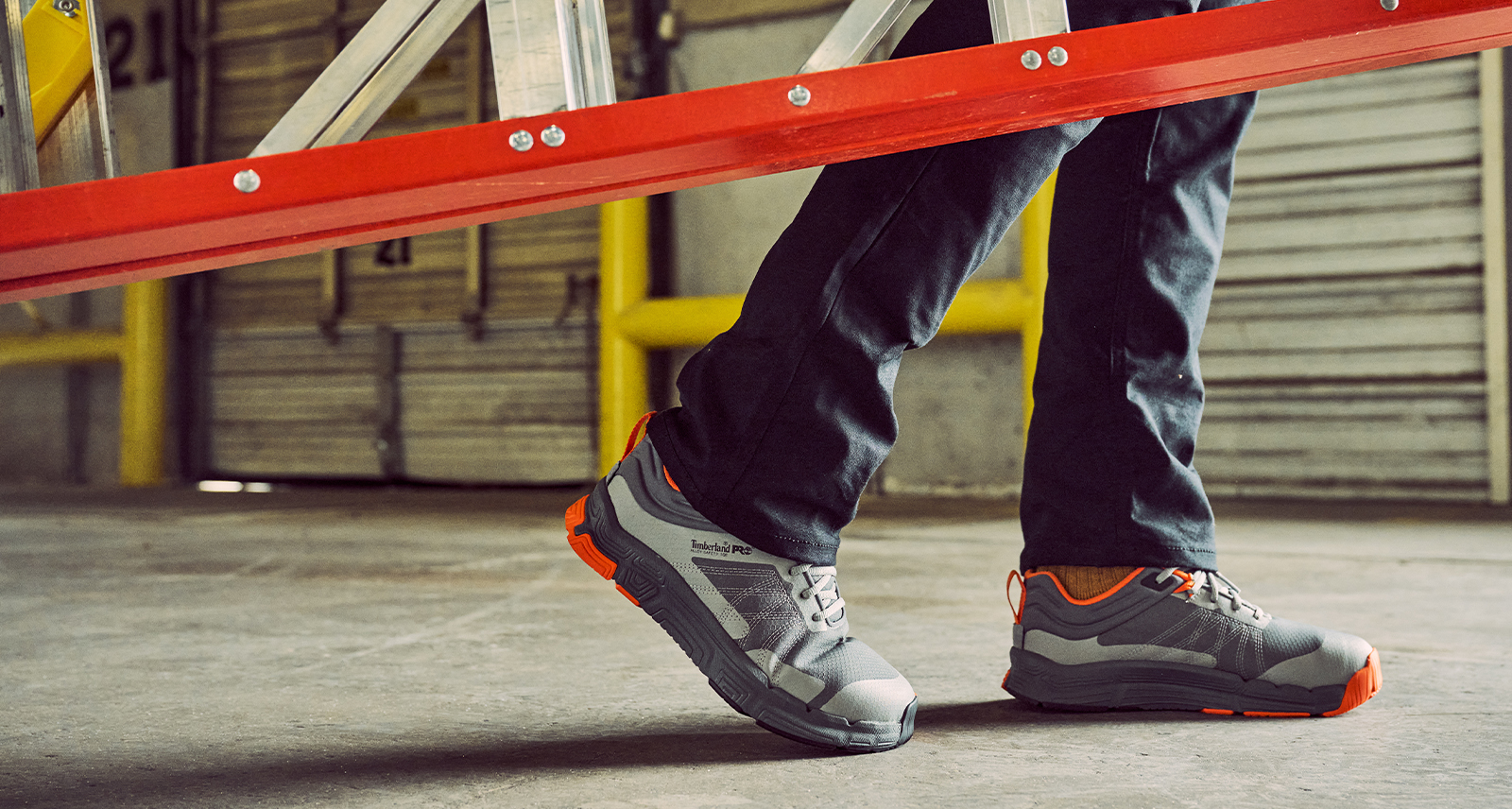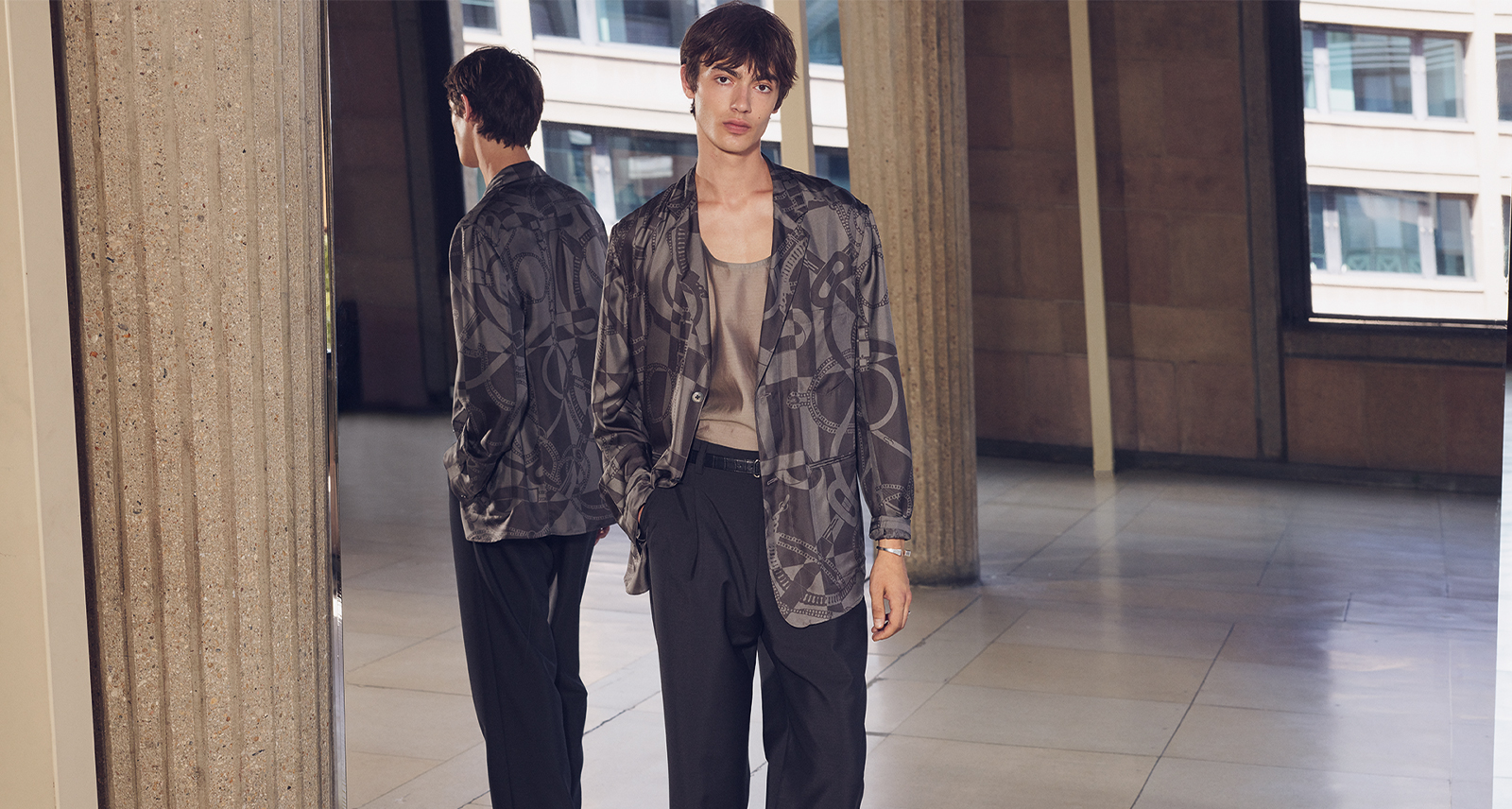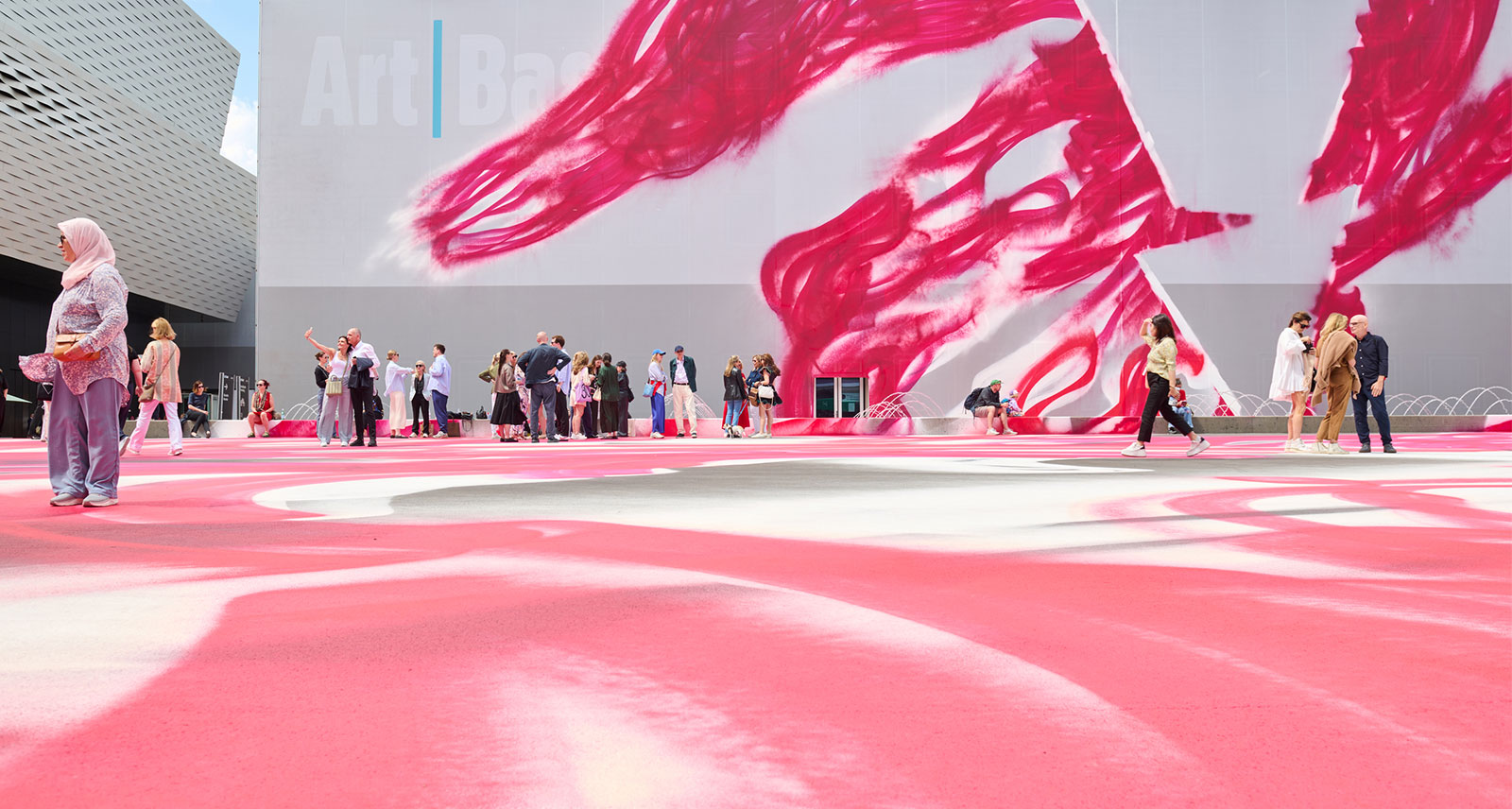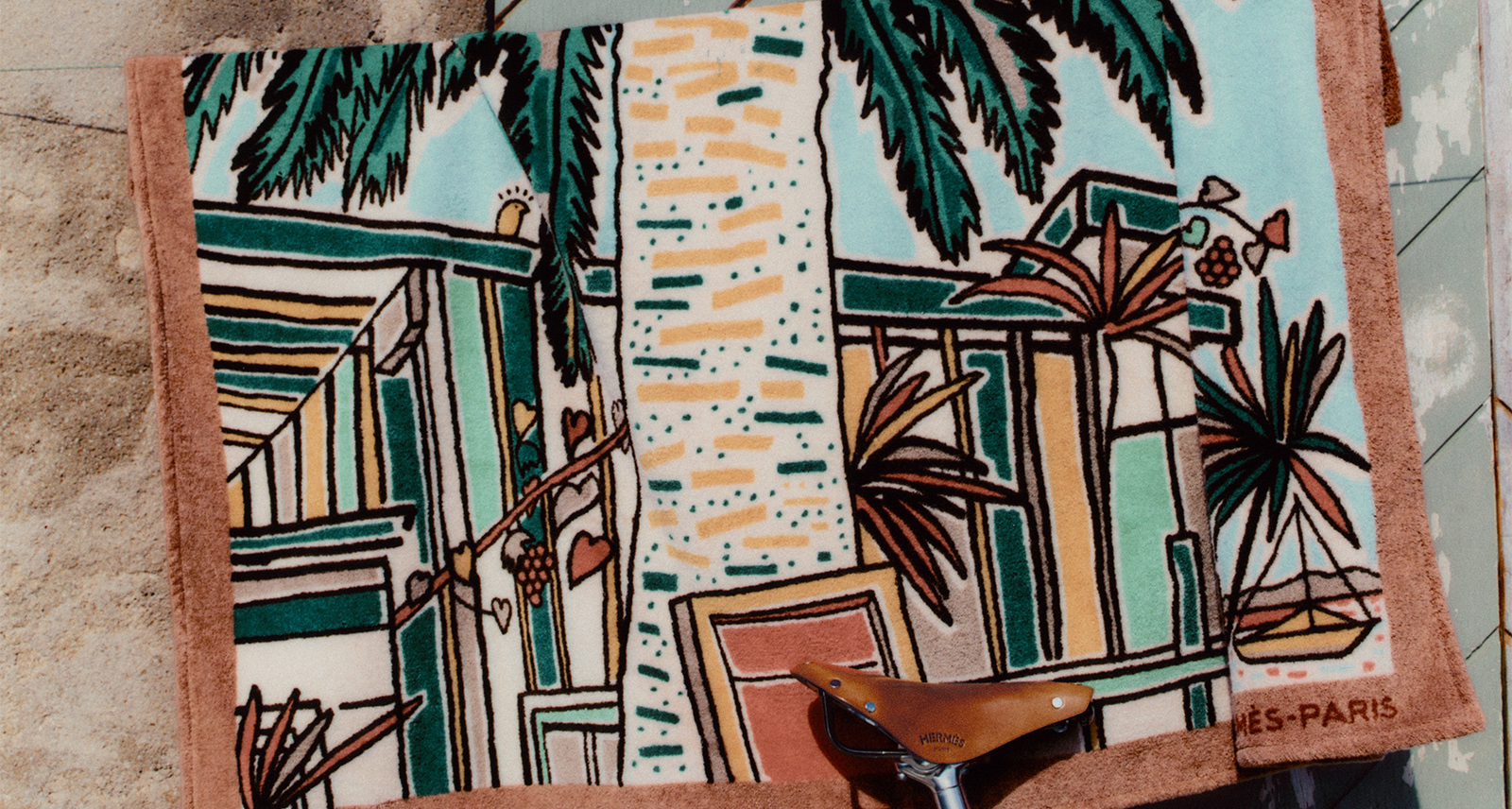Even If You Weren’t at Burning Man, You Should Listen to Tycho
How many graphic designers do you know who also happen to moonlight as Grammy-nominated ambient techno artists? Such is the life of Scott Hansen, a San Franciso-based visual artist who somehow found his way at the forefront of the IDM scene (that’s intelligent dance music, for all you grandpas) as Tycho. His electronic project, which began in the early aughts and has since evolved into a full-fledged, world-touring live band, is many things to many people — some folks use it as chill music to study to, others trip out to it at Burning Man.
Tycho’s ace new album, Weather, breaks away from traditional instrumental numbers to focus on vocal-led tracks instead. Ahead of his show in Toronto tonight, we caught up with Hansen to talk about Tycho’s bold new direction, how his sunrise sets became a Burner tradition, and what the future holds for his shimmering, synth-laden journey.
Would you like me to call you Scott or Tycho?
Scott’s fine!
Awesome. So how did you come up with the name Tycho anyway?
There was a Danish astronomer named “Tycho” [pronounced Tee-k-oh in Danish]. I was also a graphic designer. I used the name “ISO50” for graphic design, so I wanted both the names to be five characters so they matched up for posters and stuff.
So do more people know you as the graphic designer ISO50 or as Tycho? Which do you think has brought you more success and which has brought you more fulfillment?
You know, that would have been a very different answer probably eight years ago or something, but I think in the years since I started touring — so 2010 — I decided to completely focus on music. I still do graphic design but just for the purposes of Tycho, essentially. I think back then graphic design was definitely the foundation of how I got the word out about the music. And that was kind of the beginning of everything. But now I don’t even know that many people know that I was a graphic designer or even associate Tycho with ISO50, because that was quite a while ago at this point.
Your album Epoch was nominated for a Grammy in 2016. Was that a huge milestone for you and did you ever see it as a possibility?
Yeah I mean that was definitely a big moment and no I never could have anticipated that in a million years, but it definitely was a huge honour. It made everything feel real because we’re just kind of on the periphery of the music industry, like underground abstract stuff — you know, the electronic music world — and so to have something like that, was kind of a legitimizing factor. It was a surprise that we got recognized by the larger music industry as a whole.
Right. So do you feel like things have changed for you since getting a Grammy nod?
I don’t know. It was part of a trajectory and an arc and I’m sure it had some effect on the way people perceive the project, so I’ve got to imagine it had a positive or some perceptible impact. But I think it was mainly, for me at least, to think that I could feel directly…for [your] parents and people who maybe don’t know exactly what we do. That’s something they can point to because it’s not really a traditional band. So it’s kind of hard to explain or for them to understand exactly what the project is. But then once you say we got nominated for a Grammy, it’s like, ‘Okay, they’re just musicians, like actual musicians.’
So I know you were at Burning Man this year. What was that like?
It was great, yeah. It’s always one of the highlights of my year to get out there and that was a big part of my career experience. The first year I went there was when I made the decision [to pursue music] because I reconnected with electronic music and just had some epiphanies about life — just, like, how short life is and how you’ve got to focus on the things you care about while you can. That just made me decide to focus on music 100 per cent in 2010, and I came back and I finished Dive [the album] because I’d been working on it for years and then I was just, like, saying, ‘Okay, let’s finish this thing and let’s get it out and really try to turn this into something I can make a living doing.’ So yeah, that was kind of the beginning and then just every year since I’ve tried in some way to get back to the experience, so for me that’s been the sunrise set.
Your sunrise sets definitely have quite the reputation. How did you even start that tradition?
The first year I went, I went to a sunrise set by Lee Burridge at Robot Heart and I didn’t even know what a sunrise set was or what the concept was. I experienced that and it just kind of made me reconsider what kinds of electronic music can move people and how important it can be. I kind of felt like at that point I was moving away from it thinking that it was just music for clubs and music for dancing and stuff. I just saw there were people taking it all in in different ways. Some people are dancing, some people are just enjoying the moment, some people are talking to their friends, and I just saw what a universally connecting experience you can create through this, in a space like that where people don’t have any expectations. We weren’t in a club so they weren’t expecting it to be like this crazy high-energy dance set. But it wasn’t background music, it was just this perfect balance. So that made me feel like this is the kind of mode of expression that suits my vision for music best. So two years after that, a friend of mine and I put together a plan to do our own set but a little bit different than Robot Heart’s where we just drive out to the middle of nowhere — the edge of this thing, which is called the Trash Fence. And so it kind of became this pilgrimage where you have to find it and you have to follow the car out there to find where it’s going to end up because you never know where it’s going to stop. So it just kind of became a unique experience in that respect. And I think that resonated with people.
For sure. Are most of your friends from the Burner community and do you consider yourself a Burner as well?
Yeah, for sure. Most of my friends from San Francisco are the people who brought me out there the first time and most of them go every year. And yeah, I’d certainly consider all of us [Burners]; we definitely appreciate that experience and look forward to it every year. That experience is definitely a big factor in keeping that group of friends together. You know, at the very least [it’s] a reunion with each other out there. If you start to lose touch there’s always that opportunity to see everybody.
So your music is very chill and relaxing. What made you decide to make this type of music, especially in an era where hip-hop dominates the charts?
Well, I mean I started making this music 20 years ago so… [Laughs.] It wasn’t quite the same sonic landscape at the time. And I think chill-out electronic music, that’s what dominated… You know, obviously electronic music hadn’t broken through to the mainstream in quite the same way that it has today, but there was Zero 7 and Thievery Corporation and Air and all these acts and that was the stuff that resonated with me, and then Boards of Canada and Ulrich Schnauss ended up being my biggest influences. But that was the vibe and that was the stuff I was tuned into. Because in the ’90s, the way I got into electronic music was drum and bass, which at the time had this kind of strain of it that was really chill and atmospheric. So that kind of hyper drum and bass got really intense and that came to prominence at the turn of the centurym and then I kind of jump over to [acts] more like DJ Shadow and everything that came out of that movement. So for me, that was what was happening and that was what I connected with. That’s the kind of energy space that flows out; I’m never seen making really intense music like that but I totally appreciate that kind of music. It’s just not something that naturally comes from me.
Right. Would you categorize your music as only electronic or you think it falls into more than one genre or style?
I don’t see a huge difference between the process of making a Tycho record and maybe like an indie rock record or something. There’s a lot of similar processes and instrumentation. There’s a lot of crossover and I think there’s a lot of different genres sprinkled into the music. But yeah, I mean at the end of the day I think of myself as an electronic musician and I think the music has been primarily electronic with organic elements integrated.
So your fifth studio album Weather just came out this summer. How has the response been?
It’s been great. People have been really receptive and I think there’s a time in your career that you need to look at the whole thing and decide your path. You start to kind of get, not blinders on, but almost you just follow this path and the path becomes more and more straight. For me, I was feeling that the last three albums were kind of a trilogy and I had started to feel like I really wanted to do something completely different and break outside of that and see what else there was to explore. For me, I think that’s what this album ended up being. And I think I was searching for what I wanted to be different about it. And I think since the beginning of my career, I’ve been wanting to make both the music of like I was saying — some of my early influences, like Zero 7 and Air. They all had vocals. And I’ve been trying to make vocal records all along but just felt like I didn’t have the opportunity or skills, really. So this time, the opportunity presented itself and I took it and it felt like a huge refresher for me. It definitely had a big impact on my level of inspiration with the idea of making music. I was getting to the point where it felt like I was kind of retreading some of the same paths so this felt like a whole new exciting chapter.
Right. So you kind of broke your own tradition by including vocals. Do you think a lot of the feedback you’re getting about this album has to do with the vocals? Were people really surprised?
Yeah, I think a lot of people were surprised. I mean it certainly had a mix. You know, some people didn’t respond very positively to it. I think whenever you create a kind of sonic identity or brand people are gonna become very comfortable and familiar with it and they’re going to come to expect that from you. And when you do something different it kind of throws people off. But I think that was the exception, not the rule. And I think most people felt like it was a refreshing change and enjoyed the different perspective and different take on it. That’s not to say that this is… I have no idea what the future holds. I think my entire goal is to break down what people expected from this thing and basically remove some of the expectations so that I have more freedom as a producer and a songwriter to do and explore new avenues of expression. I want to also be able to move and adapt and evolve into these different things and different spaces. So this was like the opening act of another kind of movie that’s coming.
So is there an overarching theme to this album?
Yes, I mean, it’s supposed to be cinematic; it’s supposed to be a journey. It’s supposed to feel like you move through these different spaces and find these paths. But overall, I think it’s about acceptance and forgiveness and coming to terms with who you are as a person and forgiving yourself for the past and looking in a positive way to the future. I just wanted the whole record to be about positivity and it just seems like there’s a lot of negativity in the world that we live in today. I think Epoch is really focused on kind of the darker side of things, which I think is beautiful in a way, to explore those things and express those things, but I just wanted this to be 100 per cent beauty and positivity. I think that’s what comes most naturally to me. And I wanted this album to be a completely natural expression.
Can you explain the #TychoEasyDIY hashtag that you began over the summer?
You know, I think the other records have all been able to be interpreted in the way that you wanted because there were no lyrics, so it was kind of this open-ended thing with this record. I wanted to humanize everything and make it be something that kind of showed the journey or the connection to the music through one person’s experience. And that ended up being Saint Sinner [a.k.a. Hannah Cottrell, the vocalist on Weather]. And so, with the lyrics it’s more literal and it’s showing you how someone else interpreted this whole kind of sonic space. So the idea was like, let’s let other people interpret the imagery as well in their own way. And it’s just kind of about taking music and it being your own and interpreting it in your own personal life, so that’s the idea behind it. It was amazing what came from it — all the stuff that people came up with.
How did you actually connect with Saint Sinner?
A mutual friend. She was staying with some family in San Francisco and that’s where I live and work. I sent her some demos and she came over to the studio and it just immediately clicked. We recorded a couple songs on the first day. And it was just like with “For How Long,” the song — like, when I first came up with that song and I was like, “I want to build a record around this.” The first time I recorded Saint Sinner, I was like, “I want to build a record around her voice.” So it was just the missing piece in the whole thing and what brought it all together.
So what can we expect from Tycho in the future?
I think I’m hoping [to be] more prolific. I want to put out more music, I want to put out more varied types of music, I want to explore different spaces and just, like, keep going so that in 10 years I can look back and see this phase as another story. Just like the phases starting with Dive — I started that in 2009, so it’s basically been 10 years of Dive, Awake, and Epoch. And now I kind of think of this as Weather and then whatever’s coming right after it.
